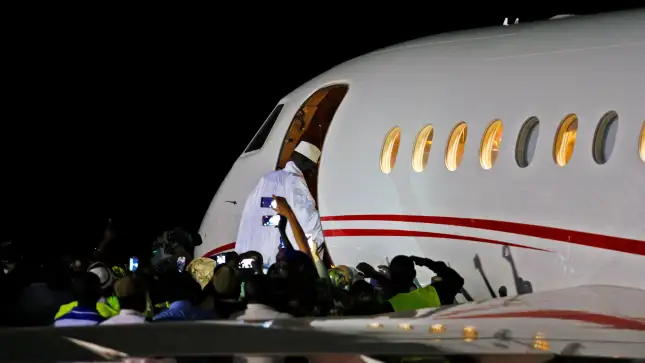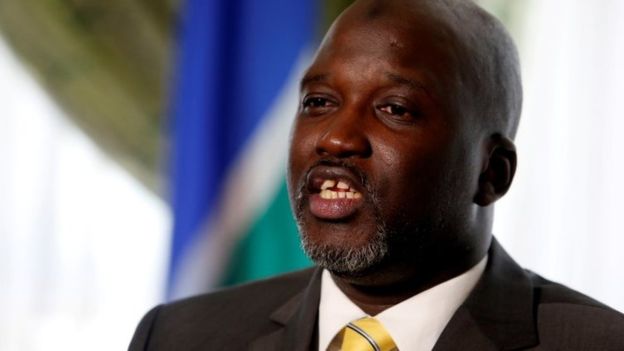
In every post-authoritarian transition, transparency is not merely a luxury—it is an absolute necessity. A nation’s ability to grapple with the legacy of its past hinges on the establishment of robust accountability mechanisms alongside symbolic gestures.
In The Gambia, the liquidation of Yahya Jammeh’s assets was expected to be a pivotal step toward justice, with the proceeds intended to provide restitution to victims and bolster the credibility of governance. Regrettably, this process has become mired in controversy, tainted by allegations of insider deals, political interference, and a troubling lack of disclosure.
Despite the weighty nature of these allegations, both the government and the opposition have chosen to remain silent, failing to demand an independent review of the asset sales. This glaring absence of accountability—particularly from the United Democratic Party (UDP), self-proclaimed activists, and the ruling administration—raises critical concerns that the very principle of transparency is being selectively wielded.
If The Gambia is genuinely committed to combating corruption, it must shatter this silence and initiate a parliamentary inquiry into Jammeh’s assets without delay.

The most compelling case for an independent inquiry arises from the revelations of Alhagie Mamadi Kurang, the former Secretary to the Janneh Commission who was removed from his post after opposing political interference in the sale of confiscated assets.
Kurang disclosed that he was charged with organising public auctions meant to uphold fairness and transparency in the process. During his oversight, only 10% of the tractors were auctioned publicly, with some fetching over D1 million.
Alarmingly, he was unexpectedly sidelined before the auction could be fully realised, allowing external actors to manipulate the remaining sales to benefit politically connected individuals.

Kurang also revealed that Jammeh left behind a staggering inventory of between 300 and 400 vehicles, including luxury models such as Rolls-Royce and Bentley, collectively worth millions. The manner in which these valuable assets were sold remains shrouded in secrecy, with reports indicating that many were grossly undervalued, intensifying suspicions of misconduct.
He further noted that the sale of Jammeh’s livestock was handled by the Sheriff Division at the Ministry of Justice, not the Janneh Commission, and chose not to elaborate on those transactions. These startling revelations should have ignited immediate political scrutiny; instead, the lack of an official inquiry has left the public feeling disillusioned and distrustful of the asset liquidation process.

A functioning democracy cannot flourish if transparency is employed selectively. The UDP, which touts itself as the foremost opposition party, has failed to issue a formal demand for an investigation into Jammeh’s asset liquidation.
This complicity is especially troubling given that the party recently endorsed former Justice Minister Baa Tambadou for a judicial position—the individual responsible for overseeing these controversial asset sales. Can an opposition party genuinely claim to champion the fight against corruption while evading essential questions about a process it should be scrutinising?
Self-proclaimed activists, too, have been conspicuously absent from this critical dialogue, despite their frequent calls for accountability in other domains. Their hesitance to challenge the opaque disposal of Jammeh’s assets provokes a pressing question: Is their brand of activism dictated by political convenience rather than a steadfast commitment to transparency?

However, EFSCRJ has officially withdrawn its endorsement of Abubacarr M. Tambadou’s candidacy for the International Court of Justice (ICJ), citing serious allegations of corruption and abuse of office related to the sale of Yahya Jammeh’s assets. EFSCRJ’s statement describes Tambadou’s involvement as unethical and potentially corrupt.
Meanwhile, the government has provided no substantive justification regarding the handling of the asset liquidation. It has failed to disclose the identities of the purchasers of Jammeh’s properties, the methods employed for asset valuation, and whether the proceeds have genuinely reached victims of his regime. This lack of transparency only deepens suspicions that insider deals have overshadowed the imperative of national restitution.
This predicament is not exclusive to The Gambia. Worldwide, governments responsible for liquidating the assets of ousted regimes have encountered similar obstacles, frequently undermining the promise of transparent processes. In Tunisia, following the ousting of President Zine El Abidine Ben Ali, the sale of confiscated assets faced allegations of insider trading and preferential access for select beneficiaries.

In Nigeria, successive administrations have faced backlash over opaque asset recovery efforts, wherein confiscated properties were purportedly redistributed to political allies instead of being allocated for national restitution.
In Guatemala, asset seizures post-dictatorship have led to legal battles, with claims that government officials prioritized connections over fairness in wealth distribution.
If The Gambia aspires to break free from the failures of poorly managed asset recovery, it must confront these challenges head-on and actively promote a culture of transparency and accountability. The time for decisive action is now; only then can the nation restore trust and honour the victims of its past.
The Gambian people must rise above mere rhetoric; they deserve concrete answers. They are entitled to more than empty reassurances—they demand decisive action and complete transparency. This moment is crucial for the nation: will The Gambia stand firm on transparency, or will political compromises compromise our quest for justice?
Silence is no longer an option. An investigation must begin immediately. The Gambian people must move beyond selective outrage; they must insist on bold action and full disclosure.
This is the defining moment for our nation, where we must choose between passive acceptance and an unwavering demand for integrity. The time for silence has passed. Now is the time for the investigation to begin.
By Alagi Yorro Jallow

The author is a veteran journalist and political commentator based in New York.










Recent Comments